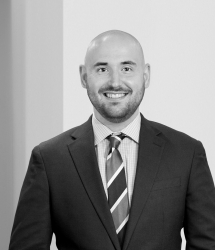Demanding Refunds: Class Action Lawsuits for Tuition & Fee Reimbursement in the COVID-19 Era
Since March 2020, hundreds of class-action lawsuits have been filed by students and parents of students seeking reimbursement of tuition and fees from higher education institutions, stemming from the transition from in-person to remote learning during the COVID-19 pandemic. These lawsuits, which are typically rooted in contract, pose a threat of protracted litigation that is costly and time-consuming for higher education institutions. That said, court decisions issued over the past year may provide hope to institutions that find themselves subject to such actions.
Last June, the U.S. District Court in Massachusetts dismissed a reimbursement lawsuit brought by Harvard students, where the students failed to show that Harvard had contractually promised in-person instruction and access to in-person facilities for the Spring 2020 semester. In the opinion, Judge Talwani noted that the students did not point to any direct language in any promotional or other materials published by the school to support the notion that Harvard promised to provide in-person instruction. (Barkhordar et al. v. President and Fellows of Harvard College, No. 1:20-cv-10968).
Likewise, federal courts in New York (Hassan v. Fordham University) and Illinois (Gociman v. Loyola University of Chicago) dismissed similar suits where the plaintiffs failed to allege that the institutions specifically promised in-person instruction versus remote, and highlighted instances where school-published materials were subject to change at any time and/or contained disclaimers such as “published for information purposes.”
In Gociman, the court also held that the parents of students did not have standing to bring suit, despite paying the tuition and fees of their adult children, as they did not have a direct contractual relationship with the school, a sentiment that has been echoed by many other courts.
Still, for some institutions, a path to resolution has come at a higher cost.
In Ford et al. v. RPI, the federal court for the Northern District of New York denied the institution’s motion to dismiss, noting that it should not necessarily be insulated from recovery of tuition where it made “bold claims — or plausibly promises about its in-person programming… in an assortment of circulars and even its catalog.”
In recent weeks, Columbia University agreed to pay out over $12.5 million to settle a lawsuit brought by a group of students seeking to collect reimbursement for tuition and fees (In re Columbia University Tuition Refund Action, S.D.N.Y., No. 20-03208). The settlement included the full $8.56 million claimed in fees for the use of facilities that had closed for the semester (e.g., libraries, gyms, etc.), for student activities, and for health services. The University also agreed to pay an additional $4 million to release the threat of future litigation. While it is notable that the court threw out claims for tuition reimbursement at the motion to dismiss phase, the students’ claim for fees survived, ultimately leading to the settlement, which will be seen as a win for the plaintiff students.
Client Tip
When publishing course catalogs, brochures, and other promotional materials, institutions should pay particular attention to the type of language that is used and may want to consider including limiting references where possible.
Institutions with concerns about legal claims for tuition and/or fee reimbursement should consult with their Bowditch attorney.
Categorized: Financial
Tagged In: tuition




